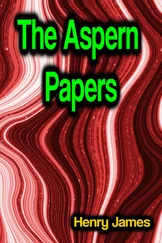Henry James - The American Scene
Здесь есть возможность читать онлайн «Henry James - The American Scene» — ознакомительный отрывок электронной книги совершенно бесплатно, а после прочтения отрывка купить полную версию. В некоторых случаях можно слушать аудио, скачать через торрент в формате fb2 и присутствует краткое содержание. Жанр: unrecognised, на английском языке. Описание произведения, (предисловие) а так же отзывы посетителей доступны на портале библиотеки ЛибКат.
- Название:The American Scene
- Автор:
- Жанр:
- Год:неизвестен
- ISBN:нет данных
- Рейтинг книги:3 / 5. Голосов: 1
-
Избранное:Добавить в избранное
- Отзывы:
-
Ваша оценка:
- 60
- 1
- 2
- 3
- 4
- 5
The American Scene: краткое содержание, описание и аннотация
Предлагаем к чтению аннотацию, описание, краткое содержание или предисловие (зависит от того, что написал сам автор книги «The American Scene»). Если вы не нашли необходимую информацию о книге — напишите в комментариях, мы постараемся отыскать её.
The American Scene — читать онлайн ознакомительный отрывок
Ниже представлен текст книги, разбитый по страницам. Система сохранения места последней прочитанной страницы, позволяет с удобством читать онлайн бесплатно книгу «The American Scene», без необходимости каждый раз заново искать на чём Вы остановились. Поставьте закладку, и сможете в любой момент перейти на страницу, на которой закончили чтение.
Интервал:
Закладка:
The hour I first recall was a morning of winter drizzle and mist, of dense fog in the Bay, one of the strangest sights of which I was on my way to enjoy; and I had stopped in the heart of the business quarter to pick up a friend who was to be my companion. The weather, such as it was, worked wonders for the upper reaches of the buildings, round which it drifted and hung very much as about the flanks and summits of emergent mountain-masses—for, to be just all round, there was some evidence of their having a message for the eyes. Let me parenthesize, once for all, that there are other glimpses of this message, up and down the city, frequently to be caught; lights and shades of winter and summer air, of the literally "finishing" afternoon in particular, when refinement of modelling descends from the skies and lends the white towers, all new and crude and commercial and over-windowed as they are, a fleeting distinction. The morning I speak of offered me my first chance of seeing one of them from the inside—which was an opportunity I sought again, repeatedly, in respect to others; and I became conscious of the force with which this vision of their prodigious working, and of the multitudinous life, as if each were a swarming city in itself, that they are capable of housing, may beget, on the part of the free observer, in other words of the restless analyst, the impulse to describe and present the facts and express the sense of them. Each of these huge constructed and compressed communities, throbbing, through its myriad arteries and pores, with a single passion, even as a complicated watch throbs with the one purpose of telling you the hour and the minute, testified overwhelmingly to the character of New York—and the passion of the restless analyst, on his side, is for the extraction of character. But there would be too much to say, just here, were this incurable eccentric to let himself go; the impression in question, fed by however brief an experience, kept overflowing the cup and spreading in a wide waste of speculation. I must dip into these depths, if it prove possible, later on; let me content myself for the moment with remembering how from the first, on all such ground, my thought went straight to poor great wonder-working Emile Zola and his love of the human aggregation, the artificial microcosm, which had to spend itself on great shops, great businesses, great "apartment-houses," of inferior, of mere Parisian scale. His image, it seemed to me, really asked for compassion—in the presence of this material that his energy of evocation, his alone, would have been of a stature to meddle with. What if Le Ventre de Paris, what if Au Bonheur des Dames, what if Pot-Bouille and L'Argent, could but have come into being under the New York inspiration?
The answer to that, however, for the hour, was that, in all probability, New York was not going (as it turns such remarks) to produce both the maximum of "business" spectacle and the maximum of ironic reflection of it. Zola's huge reflector got itself formed, after all, in a far other air; it had hung there, in essence, awaiting the scene that was to play over it, long before the scene really approached it in scale. The reflecting surfaces, of the ironic, of the epic order, suspended in the New York atmosphere, have yet to show symptoms of shining out, and the monstrous phenomena themselves, meanwhile, strike me as having, with their immense momentum, got the start, got ahead of, in proper parlance, any possibility of poetic, of dramatic capture. That conviction came to me most perhaps while I gazed across at the special sky-scraper that overhangs poor old Trinity to the north—a south face as high and wide as the mountain-wall that drops the Alpine avalanche, from time to time, upon the village, and the village spire, at its foot; the interest of this case being above all, as I learned, to my stupefaction, in the fact that the very creators of the extinguisher are the churchwardens themselves, or at least the trustees of the church property. What was the case but magnificent for pitiless ferocity?—that inexorable law of the growing invisibility of churches, their everywhere reduced or abolished presence, which is nine-tenths of their virtue, receiving thus, at such hands, its supreme consecration. This consecration was positively the greater that just then, as I have said, the vast money-making structure quite horribly, quite romantically justified itself, looming through the weather with an insolent cliff-like sublimity. The weather, for all that experience, mixes intimately with the fulness of my impression; speaking not least, for instance, of the way "the state of the streets" and the assault of the turbid air seemed all one with the look, the tramp, the whole quality and allure, the consummate monotonous commonness, of the pushing male crowd, moving in its dense mass—with the confusion carried to chaos for any intelligence, any perception; a welter of objects and sounds in which relief, detachment, dignity, meaning, perished utterly and lost all rights. It appeared, the muddy medium, all one with every other element and note as well, all the signs of the heaped industrial battle-field, all the sounds and silences, grim, pushing, trudging silences too, of the universal will to move—to move, move, move, as an end in itself, an appetite at any price.
In the Bay, the rest of the morning, the dense raw fog that delayed the big boat, allowing sight but of the immediate ice-masses through which it thumped its way, was not less of the essence. Anything blander, as a medium, would have seemed a mockery of the facts of the terrible little Ellis Island, the first harbour of refuge and stage of patience for the million or so of immigrants annually knocking at our official door. Before this door, which opens to them there only with a hundred forms and ceremonies, grindings and grumblings of the key, they stand appealing and waiting, marshalled, herded, divided, subdivided, sorted, sifted, searched, fumigated, for longer or shorter periods—the effect of all which prodigious process, an intendedly "scientific" feeding of the mill, is again to give the earnest observer a thousand more things to think of than he can pretend to retail. The impression of Ellis Island, in fine, would be—as I was to find throughout that so many of my impressions would be—a chapter by itself; and with a particular page for recognition of the degree in which the liberal hospitality of the eminent Commissioner of this wonderful service, to whom I had been introduced, helped to make the interest of the whole watched drama poignant and unforgettable. It is a drama that goes on, without a pause, day by day and year by year, this visible act of ingurgitation on the part of our body politic and social, and constituting really an appeal to amazement beyond that of any sword-swallowing or fire-swallowing of the circus. The wonder that one couldn't keep down was the thought that these two or three hours of one's own chance vision of the business were but as a tick or two of the mighty clock, the clock that never, never stops—least of all when it strikes, for a sign of so much winding-up, some louder hour of our national fate than usual. I think indeed that the simplest account of the action of Ellis Island on the spirit of any sensitive citizen who may have happened to "look in" is that he comes back from his visit not at all the same person that he went. He has eaten of the tree of knowledge, and the taste will be for ever in his mouth. He had thought he knew before, thought he had the sense of the degree in which it is his American fate to share the sanctity of his American consciousness, the intimacy of his American patriotism, with the inconceivable alien; but the truth had never come home to him with any such force. In the lurid light projected upon it by those courts of dismay it shakes him—or I like at least to imagine it shakes him—to the depths of his being; I like to think of him, I positively have to think of him, as going about ever afterwards with a new look, for those who can see it, in his face, the outward sign of the new chill in his heart. So is stamped, for detection, the questionably privileged person who has had an apparition, seen a ghost in his supposedly safe old house. Let not the unwary, therefore, visit Ellis Island.
Читать дальшеИнтервал:
Закладка:
Похожие книги на «The American Scene»
Представляем Вашему вниманию похожие книги на «The American Scene» списком для выбора. Мы отобрали схожую по названию и смыслу литературу в надежде предоставить читателям больше вариантов отыскать новые, интересные, ещё непрочитанные произведения.
Обсуждение, отзывы о книге «The American Scene» и просто собственные мнения читателей. Оставьте ваши комментарии, напишите, что Вы думаете о произведении, его смысле или главных героях. Укажите что конкретно понравилось, а что нет, и почему Вы так считаете.












